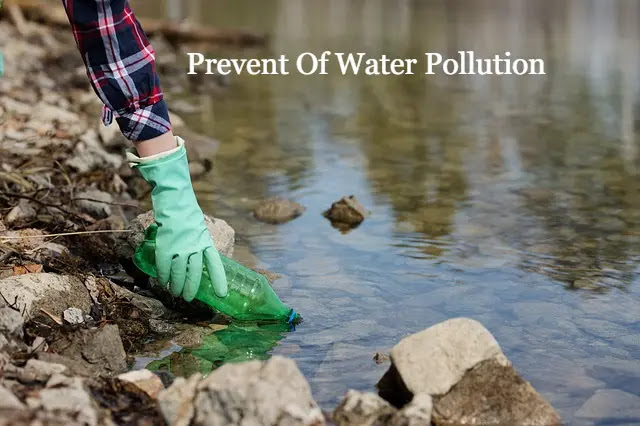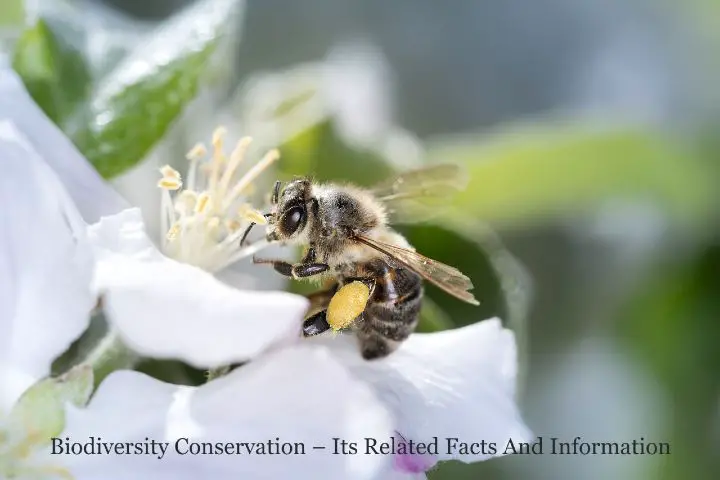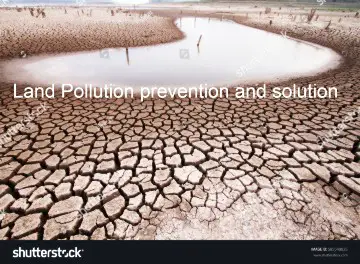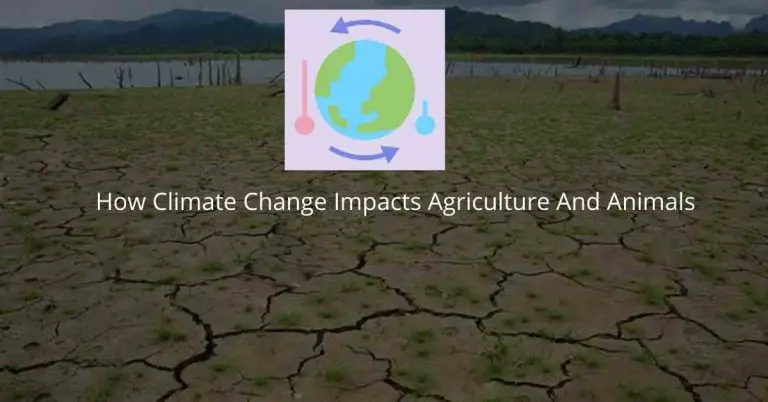10 Best Ways To Prevent Of Water Pollution

Development of modern human civilization, a serious problem of water pollution has arisen. The trend of industrialization and urbanization is increasing. With the establishment of various industries in and around villages, they are rapidly turning into towns and cities.
To avoid water pollution, polluted water, residual masonic waste, etc., from extreme construction of industries, it should be prevented from flowing into rivers through drains. It can prevent water pollution to some extent.
Ways to prevent of water pollution
The contaminated water, residual chemical wastes, etc., released from excessive construction of industries are dumped into the rivers through drains. The wastes generated by the daily activities of the people living in the houses are also being flowed into the rivers, causing the rivers to become highly polluted.
If we have to control water pollution, then we have to find some solution to this problem and for this, we will have to make laws. And by following some of the following methods, we can reduce water pollution to some extent.
1. Industries and industrial institutions will have to act more responsibly
Many industries throw their wastes away without being treated, which flow into the rivers flowing through the rainwater. Proper disposal of these wastes is essential for water pollution not spread by industrial wastes.
Some industries follow all waste disposal rules and completely destroy industrial waste or use it safely.
Along with these rules, it is also necessary for the industries to change their working practices and follow all the related norms to prevent water pollution caused by manufacturing work.
Not all industries are following these rules and most of them are dumping waste directly into rivers, which is a dangerous scenario related to water pollution. All these wastes eventually affect humans and animals.
2. Proper disposal of toxic waste
It is also extremely important to adopt the right methods of disposal of toxic wastes. Safe disposal of wastes and water from the factories where paints, sanitation, and stain erasing chemicals are used is very important.
Oil leaks from vehicles or other machines also have to be completely prevented. The leakage of oil from cars or machines is also one of the major factors of water pollution.
Because of this, care of cars and machines is very important. After completion of the work, especially in factories where oil is used, it is necessary to clean the bad oil or safely dispose of it.
3. Drains cleaning
Drains need to be cleaned regularly to prevent water pollution. Construction of Paved drains is essential in rural areas as water flows freely in rural areas.
In rural areas, according to tonnage, waste, and pollutants flow with water and drain into rivers and canals. We should develop a technique to keep drains away from water sources.
4. Recycling and reuse of water
Some other ways to prevent water pollution include recycling and reusing of water and this helps to ensure the availability of clean and fresh water.
We can use low-quality water such as dirty water in industries, after washing utensils or gardening, etc. and thus we protect the clean water from getting contaminated by these works. We can also use treated water for washing vehicles.
We should use clean and fresh water only for drinking. Presently, water is being recycled in limited quantities. Therefore, we have to put more emphasis on proper recycling and reuse of water to prevent water pollution.
5. Soil erosion prevention
It is also necessary to prevent soil erosion to prevent water from getting polluted. If we conserve soil, then to some extent we can prevent water pollution.
We need to plant more trees to prevent soil erosion. We have to adopt such methods by which soil erosion can be prevented and the health of the environment can be improved.
6. It is necessary to live in harmony with nature
Human beings have forgotten that their existence on this earth is due to nature and the environment. Human negligence is a major cause of environmental pollution. Species of various aquatic organisms die only due to humans bathing in the water and polluting it.
Household waste and industrial waste add to this problem even further. The time has come for us to live in ways that maintain the continuity of life.
7. Need to adopt organic farming
Farmers will have to stop the use of various chemical fertilizers and pesticide spraying on crops to produce tremendous crops in their fields.
All these chemical substances go into the ponds and rivers through rainwater and pollute the water bodies badly. Farmers need to adopt organic farming methods.
8. Make Swachh Bharat Abhiyan a success
To implement the “Swachh Bharat Abhiyan” in its entirety, it is necessary to make India completely open defecation-free. At present, the problem of throwing garbage in public places and defecation in the open continues to worsen. When it rains, all this waste and excreta go into the rivers or ponds and thus pollute the sources of water. People themselves, in the absence of a proper drainage system, discharge the waste materials into rivers and ponds.
Ponds and rivers are also used extensively for the purpose of bathing and washing clothes, due to which large amounts of dirt and pollution accumulate in the sources of water. Due to such other activities, garbage, sewage, dead bodies, old clothes, and other dirty materials and ashes, etc. flow into the rivers. There is no proper arrangement of toilets in slums and settlements located around residential areas in the city and this situation shows us the need to strive sincerely to achieve the goals of Swachh Bharat.
9. Cleaning of waterways and seaside
Cleaning rivers and ponds at regular intervals are necessary because humans have badly polluted them. Even groundwater has been polluted and humans are spreading pollution in seawater as well. Traveling by sea routes and living near the beach has become a competition and due to this many small and big settlements have settled near the beaches and these settlements are contributing to polluting the seawater which is a serious concern. subject to.
Toilets do not normally exist in temporary settlements near the sea and these people defecate directly on the beaches and also throw household waste into the sea. Sea ships also throw their garbage in seawater. Sometimes there are shipwreck accidents in the sea due to which various chemical substances and oil flow into the seawater which leaves long-term effects on the sea creatures.
Due to this kind of pollution in the seawater, some animals die instantly and the seawater gets more polluted by them. Along with the organisms living in the seawater, this water also makes humans sick. Developed countries also dump their e-waste and other toxic waste into the sea, which causes seawater to be polluted severely.
10. We must strictly follow all laws to prevent of water pollution
Statutory arrangements, such as the Water Act 1974; There are laws like Prevention and Control of Pollution and Environmental Protection Act 1986 but they are not being implemented effectively, so we have to implement these laws strictly for effective prevention of water pollution. The Water Cess Act 1977 is another important legislation aimed at reducing pollution and effective prevention of it.
However, the effect of this law has been limited. Apart from laws, it is necessary to make the public aware of the harmful effects of water pollution and make them aware so that an effective solution can be found to the problem of water pollution.
How to stop water pollution
A look at the methods of water pollution control:
- We should treat poisonous and waste materials before they flow into rivers and ponds.
- We should stop petroleum products from getting into the water.
- Some algae and water-growing plants, which are helpful in keeping the water clean, should grow these plants as much as possible throughout India.
- In cities and towns, waste must be disposed of according to a classified garbage can to protect water from contamination. Naturally rotting garbage can be used as fertilizer in fields and in this way it can help in the production of crops.
-
Dead bodies should not be thrown into rivers
-
All cities and towns should have sewer facilities.
-
Water should neither be misused nor wasted.
-
We should stop the excreta and sewage water from flowing into cities and towns and drain them into pits. By doing this, they are converted into compost which can be used in farming.
-
We should not use plastic because it cannot be destroyed biologically.
-
We should convert pollutants into useful goods through scientific experiments. Recently, Central Building Research Institute, Roorkee has set a good example by developing technology related to this work. This institute has successfully started converting ash from thermal power plants into bricks.
-
Chlorine tablets, iodine, etc. should be used to make water germ-free in homes. Also, there are some good quality water purifiers in the market which filter the water and clean the water, we should use them.
-
Dumping of waste in rivers and other water sources should be prohibited and appropriate steps should be taken for this.
-
Organic materials must be oxidized before disposal.
-
Bleaching powder or other chemical substances should be used to destroy bacteria in the water.
-
We should not tamper with the public water distribution system.
-
The immersion of the idols during religious ceremonies is to be done at the designated place only.
-
We should avoid wasting even a drop of water.
-
Internationally, nuclear testing in the seas should be banned.
-
Society should be made aware of the danger of water pollution.
-
Contaminants can be converted into non-toxic materials by treatment.
-
Radioactive waste in the ponds can be removed by the method of oxidation.
-
We should avoid large ponds because sunlight combined with organic nutrients there creates bacteria that increase waste materials.
-
Polluted water should be used to make fertilizers as they contain high amounts of phosphorus, potassium, and nitrogen.
-
We should put more and more sewage treatment plants as they play an important role in cleaning up polluted water.
-
We should ensure and enforce such laws that prohibit the waste of industries from being discharged into untreated rivers and oceans.
-
We should apply hyacinth in water, which is known for the treatment of polluted water. Along with cleaning organic and chemical waste, they also remove heavy metals from the water.






